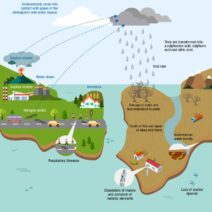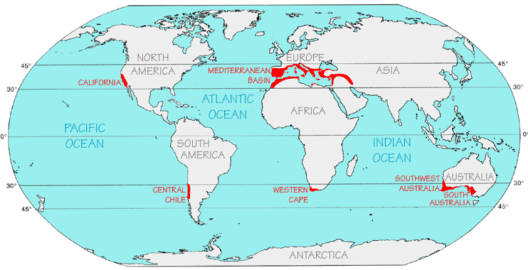Climate change presents one of the most formidable challenges of our time, necessitating urgent and decisive action. Among the various strategies proposed to combat this overarching threat, carbon taxes emerge as a pivotal instrument that could fundamentally alter the landscape of climate action. A carbon tax is essentially a financial charge imposed on the carbon content of fuels, incentivizing businesses and individuals to reduce their greenhouse gas emissions. This financial mechanism serves not only as an economic deterrent against carbon pollution but also as a profound catalyst for innovation and sustainable development.
At the core of the carbon tax model lies the principle of internalizing environmental costs. Historically, fossil fuel consumption has largely gone unchecked, allowing industries to externalize the ecological damage associated with greenhouse gas emissions. A carbon tax seeks to rectify this imbalance by linking economic incentives directly to carbon outputs. By assigning a monetary value to the act of emitting carbon, industries are compelled to re-evaluate their operational practices. This reassessment can lead to the adoption of cleaner technologies and more efficient processes, ultimately contributing to a significant decrease in overall emissions.
One of the most striking promises of carbon taxes is their potential to drive a shift in societal perspective regarding the use of fossil fuels. By making the consequences of carbon emissions financially palpable, a carbon tax encourages both consumers and producers to reconsider their choices. Individuals may choose to reduce their reliance on carbon-intensive products, prompting companies to innovate and offer more sustainable alternatives. The result is a collective reconsideration of consumption patterns, which can underpin a broader cultural shift toward sustainability. Rather than being viewed solely as environmentalists, individuals become economic stakeholders in the pursuit of a cleaner planet.
Moreover, the revenue generated from carbon taxes presents an opportunity for governments to invest in renewable energy initiatives and public infrastructure. This is where the dual benefit of carbon taxes becomes apparent: they not only discourage carbon emissions but also create a revenue stream that can be reinvested into the very solutions that foster a low-carbon economy. Funding from carbon taxes can be allocated to research and development of green technologies, improvements in public transit systems, and educational programs that raise awareness about sustainability practices. In this way, a carbon tax serves as a self-reinforcing tool that promotes economic diversification and resilience.
Furthermore, implementing a carbon tax can help address economic disparities. While there is legitimate concern that a carbon tax may disproportionately impact low-income households, strategies such as revenue recycling can mitigate this effect. By rebating a portion of the tax revenue back to the public in the form of direct payments or reducing other taxes, governments can ensure that the burden of the carbon tax is equitably distributed. Such redistributive policies can foster a more just transition to a low-carbon economy, empowering those who might otherwise be adversely affected by rising energy costs. This alignment of environmental and social justice creates a compelling narrative for carbon taxes as a holistic solution to climate change.
Critically, the global nature of climate change necessitates international cooperation, and a carbon tax can serve as a unifying framework for nations to collectively address emissions. If countries were to coordinate their carbon pricing mechanisms, a robust and standardized approach could lead to an unprecedented alignment of global climate policies. Such coordination might even discourage carbon leakage — the phenomenon whereby businesses move to jurisdictions with lax environmental regulations. By establishing a fair and consistent system of carbon taxation across borders, nations can work towards a level playing field while fostering international collaboration in the fight against climate change.
Yet, the successful implementation of carbon taxes encounters significant political and public resistance. Skepticism often arises from concerns regarding economic implications, the effectiveness of tax collection, and the perceived burden on consumers. To overcome this skepticism, it is essential to engage in transparent dialogue about the functional aspects of carbon taxes. Providing empirical evidence of their success in jurisdictions such as British Columbia or Sweden can help build credibility. These case studies demonstrate how carbon taxes can coexist with economic growth while also leading to substantial emissions reductions. Public opinion can transform when people see that environmental policies do not equate to economic stagnation but rather to enhanced opportunities and innovation.
Moreover, framing carbon taxes as integral to a broader climate strategy can help assuage fears. They should not be viewed in isolation but as part of a comprehensive policy landscape that includes regulations, subsidies for renewable energy, and investment in green infrastructure. Increasing the public’s understanding of carbon taxes as tools that support climate resilience, promote innovation, and foster economic growth is essential. By disentangling fears from facts, advocates can more effectively tout carbon taxes as a necessary component of the solution to climate change.
In conclusion, carbon taxes hold vast potential to be a game-changer for climate action. They promise to shift societal perspectives, catalyze innovation, generate revenue for sustainable initiatives, and foster international cooperation. This multifaceted approach positions carbon taxes as not merely a financial instrument but as a transformative force capable of addressing both environmental and social equity challenges. As the world grapples with the dire consequences of climate change, adopting policies that emphasize the importance of sustainable practices will be crucial. The pathway to a low-carbon future is fraught with challenges, but embracing carbon taxes can illuminate a transformative route forward for individuals, businesses, and governments alike.








